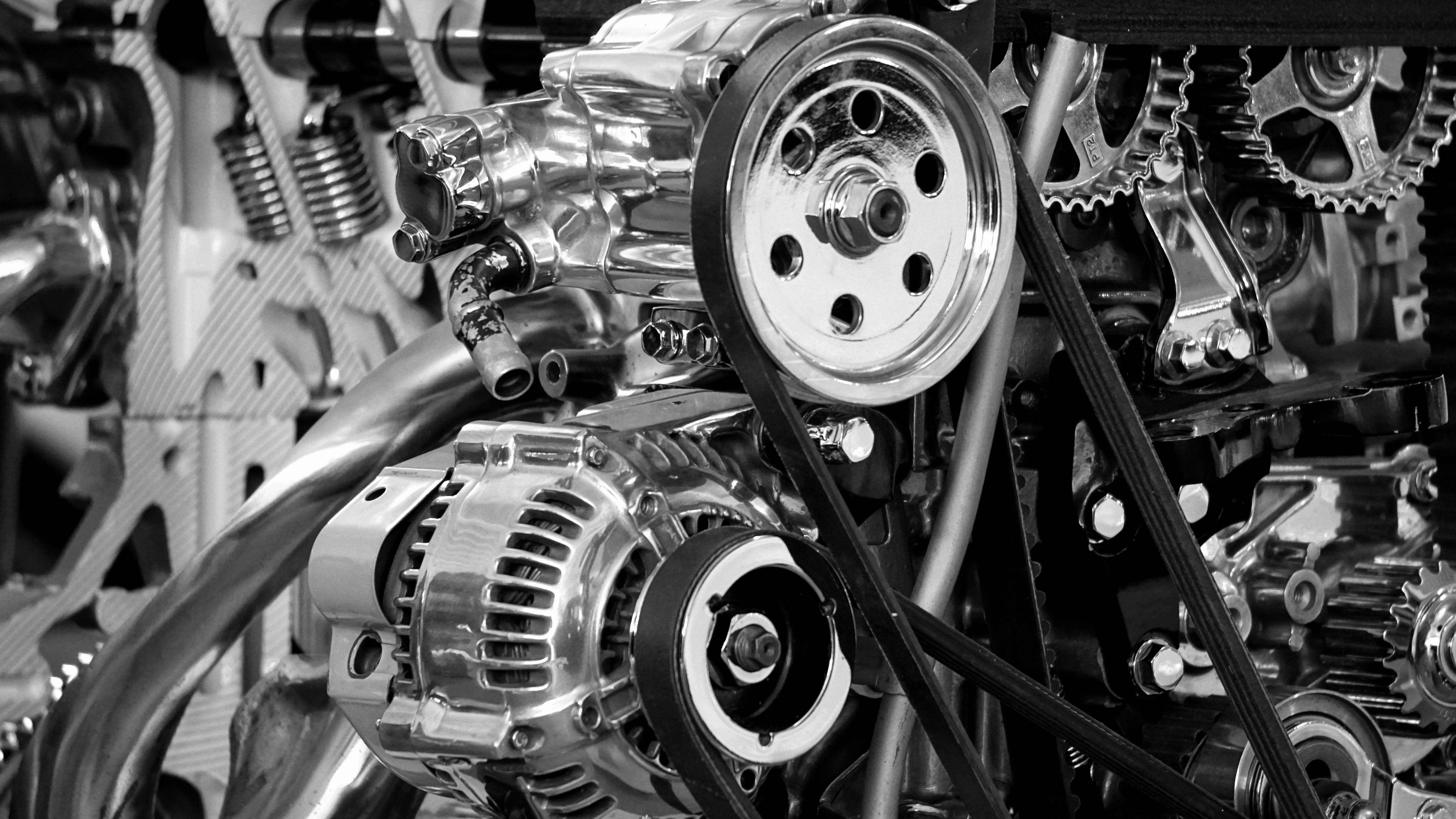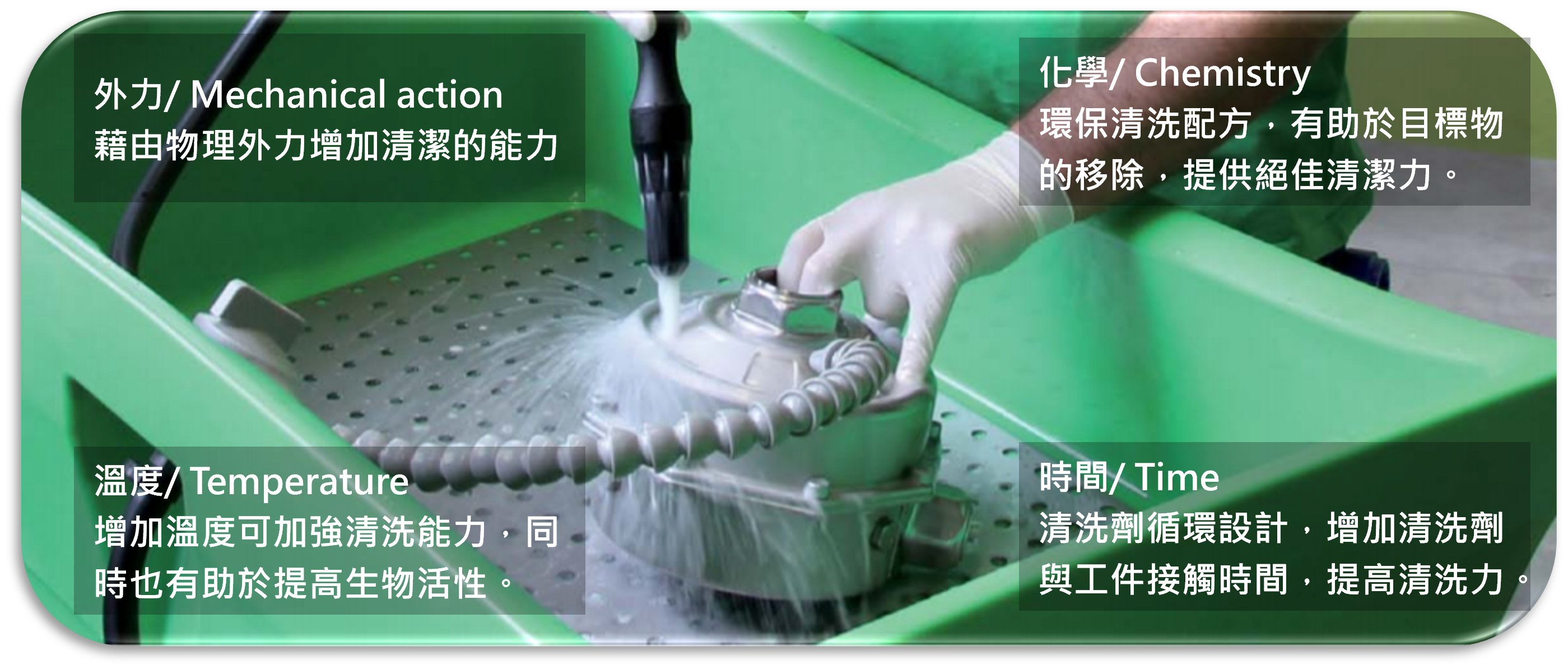The Secret to Saving One Million NTD Annually with Low-Temperature Industrial Parts Cleaning!?
Recently, organizations and enterprises across various industries have an increasing preference for seeking the solutions that can not only meet their operational needs but also help reduce costs and support environmental protection.
Temperature Difference: Why does it matters?
Most industrial parts washers operate at temperatures between 70°C and 75°C to achieve the desired level of cleanliness. While effective, maintaining such high temperatures requires significant energy input, leading to increased operational costs and carbon emissions.

(Source: Pexels)
Finding the Balance: How can BIO-CIRCLE Parts Washers Deliver Powerful Cleaning at Lower Temperatures
Standing out from traditional methods, this high-performance parts washer delivers excellent cleaning results even at lower temperatures of 50°C to 55°C. While a difference of 20°C to 25°C may seem small at first glance, its impact is significant.
By operating effectively at such reduced temperatures, the parts cleaning system not only demonstrates its efficiency but also makes a significant contribution to environmental sustainability. The lower energy consumption required to maintain these temperatures can substantially reduce both carbon emissions and energy costs, making it a more sustainable and cost-effective solution in the long run. This seemingly small operational change can bring considerable benefits to both the environment and a company's financial performance.
Case Study: Saving NT$1,000,000 (approximately £30,000) annually.
Let's take a look at a case study from one of our clients—a mid-sized manufacturing company aiming to reduce operational costs and environmental footprint as part of its overall business objectives.
Before adopting the BIO-CIRCLE parts washer, the company relied on traditional machines operating at 75°C. These machines were effective, but the energy costs associated with maintaining such high temperatures were substantial over time. After switching to the BIO-CIRCLE washer, with a reduced operating temperature of just 25°C, the company reported an annual cost reduction of approximately £30,000.
The reductions were primarily attributed to the lower energy required to heat the machine to its reduced operating temperature. Additionally, the company also observed a decrease in maintenance costs, as the washer is gentler on both the equipment and the cleaned parts, resulting in less wear and tear over time.
According to the principles of cleaning, the factors that affect cleaning effectiveness can be categorized into four main elements, with temperature being only one of them. Variations in the other factors can lead to a strikingly different cleaning performance. The four key elements of cleaning power are summarized below.
Four Essential Elements of Cleaning Effectiveness
These elements work together in industrial cleaning and other cleaning process to achieve an ideal cleaning performance. These elements include:
Mechanical Power (Mechanical Action): This refers to physical forces such as scrubbing, wiping, spraying, ultrasonic waves, or vibrations. These mechanical forces help remove dirt and contaminants from surfaces. Increasing mechanical action can enhance cleaning efficiency, especially when dealing with stubborn stains that are difficult to remove.
Cleaning Agent (Chemical Action): This refers to the use of chemicals or cleaning solutions to dissolve, break down, or remove contaminants during the cleaning process. Selecting the appropriate cleaning agent is crucial for tackling different types of pollutants, and its effectiveness directly impacts the final cleaning result.
Temperature: The temperature of the cleaning solution significantly affects cleaning performance. Higher temperatures generally accelerate chemical reactions and the breakdown of contaminants, thereby enhancing cleaning efficiency. However, in some cases, temperature must be carefully controlled to avoid damaging sensitive materials.
Time: The duration of the washing process also influences the final cleaning performance. Allowing sufficient time enables chemicals to act more effectively on contaminants, aiding in their dissolution or breakdown. Moreover, it's important to balance time with other factors—shorter cleaning times can often be compensated for by increasing mechanical action or temperature.

▲Through the clever design in parts cleaning, the cleaning efficiency is significantly enhanced.
Science behind the high efficiency
Impressive cleaning performance can be achieved even at low temperatures, thanks to our advanced cleaning technology—developed through over 35 years of research and testing at BIO-CIRCLE's headquarters in Gütersloh, Germany. Unlike traditional systems that rely heavily on high temperatures to break down contaminants, our approach combines biodegradable cleaning fluids with optimized mechanical action. This ensures effective removal of grease, oil, and other stubborn residues from parts, even at lower temperatures.
This kind of cleaning agents are specially formulated to remain effective at low temperatures. Based on bioremediation, they possess self-cleaning properties and maintain consistent cleaning performance. The equipment is equipped with multiple filtration systems to ensure thorough removal of contaminants from the liquid. Through careful design, engineering, and rigorous testing, the system strikes the optimal balance between efficient cleaning and outstanding results at lower temperatures.
Environmental Advantages
Beyond cost savings, the lower operating temperatures of high-efficiency parts cleaning machines also offer significant environmental benefits. By reducing the energy required to heat cleaning solutions, companies can lower their carbon emissions and contribute to a greener, more sustainable future.
For the client in our case study, this adjustment not only reduced operational costs but also aligned with their corporate sustainability goals. By adopting energy-efficient cleaning technologies, they were able to reduce their overall carbon footprint while maintaining high standards of cleanliness and operational efficiency.
(Part of the content excerpted from BIO-CIRCLE UK)
CONTACT US
Kelly Chemical Corporation
Electronics
TEL:(02)2762-1985 ext 11200
Online Message
Leave your contact information,
and we will get in touch with you soon.
Email Consultation
After receiving your email,
we will process it as soon as possible.send Email